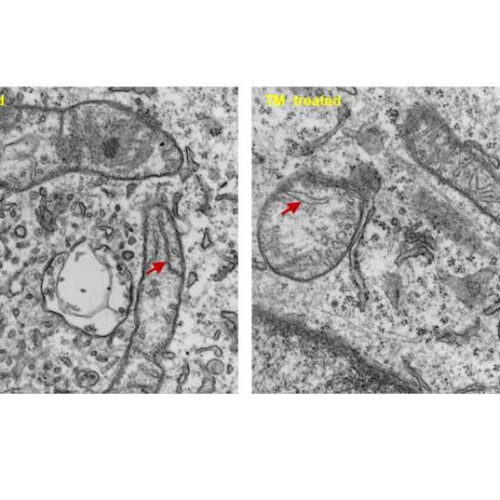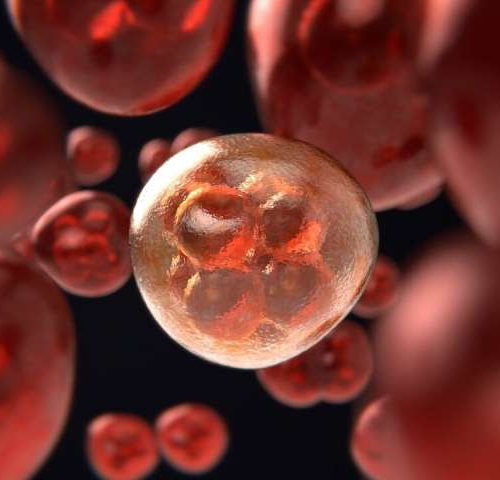Research finds nondividing colon cancer cells use altered glucose metabolism. Harvard Medical School researchershave revealed new insights into the adaptations cancer cells make to rewire their metabolism to achieve growth and survive. The discoveries, published in Nature Communications, include a challenge to a well-known feature in cancer metabolism and raise the call for tools to study...
Tag: <span>Cancer metabolism</span>
Reducing copper in the body alters cancer metabolism to reduce risk of aggressive breast cancer
by Weill Cornell Medical College Transmission electron microscopy images showing TM-mediated changes in the cristae (arrow) inside the mitochondria of cancer cells, which contribute to cellular metabolism. Image courtesy of Dr. Divya Ramchandani, Juan Pablo Jimenez, and Leona Cohen-Gould. Depleting copper levels may reduce the production of energy that cancer cells need to travel and...
Greedy for glucose: Cancer cells rely on a primeval energy-producing pathway to proliferate and spread
by Delthia Ricks , Medical Xpress To fuel their rapid proliferation, tumor cells rely on glycolysis, a primordial metabolic pathway that is easily exploited by cancers to gain energy to grow—and spread. Glycolysis is the oldest form of energy production in living cells. It has been around for billions of years, having emerged before oxygen...
New automated method helps identify cancer cell metabolism inhibitors
Reviewed by James Ives, M.Psych. (Editor) UCLA Jonsson Comprehensive Cancer Center researchers have developed a new automated method for testing hundreds of molecules at a time to find out which ones block cancer cells from consuming glucose – the sugars they need to spread and grow. Using robotics, the researchers tested 3,555 compounds on non-small-cell...
Researchers discover critical process for how breast cancer spreads in bones
Once breast cancer spreads to bone, treatment becomes nearly impossible. Breast cancer cells can lie dormant in the bone, often undetectable and able to escape typical treatments. Unfortunately, these dormant cells can awaken at any time to generate tumors. All of this combined makes it difficult to understand how the cells proliferate and how to...
Is Cancer a Metabolic Disorder?
By Samuel Mckenzie, BSc Reviewed by Dr. Jennifer Logan, MD, MPH Errors with the metabolism of cells can cause a multitude of different cancers. The metabolic mechanisms in cancerous cells can be forcibly hijacked to further support the cancerous phenotype of these cells. Fortunately, the metabolism of cancerous cells can be manipulated to provide therapeutic treatment for these cancers....
Study overturns dogma of cancer metabolism theory
Scientists at the Eli and Edythe Broad Center of Regenerative Medicine and Stem Cell Research at UCLA have discovered that squamous cell skin cancers do not require increased glucose to power their development and growth, contrary to a long-held belief about cancer metabolism. Image shows squamous cell skin cancer tumors with lactate production (a byproduct of glucose...
CRI study challenges long-standing concept in cancer metabolism
DALLAS – Oct. 5, 2017 – Scientists at the Children’s Medical Center Research Institute at UT Southwestern (CRI) have discovered that lactate provides a fuel for growing tumors, challenging a nearly century-old observation known as the Warburg effect. Dr. Ralph DeBerardinis This new finding may represent a major shift in how researchers view cancer metabolism and open a...


